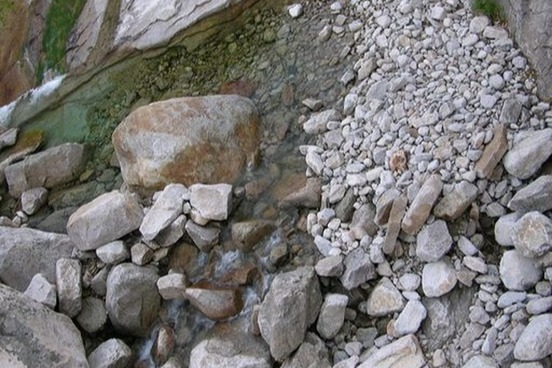
Thalweg
noun 1 : subsurface water percolating beneath and in the same direction as a surface stream course 2 : the middle of the chief navigable channel of a waterway which constitutes a boundary line between states
While thalweg more famously (though still not actually famously) refers to a line that follows the lowest part of a valley (whether or not water is present), and even somewhat less famously to a line of continuous maximum descent from any point on a land surface, or to a line crossing all contour lines at right angles, its water-specific meanings are what earns the word a place here. Thank the Germans for the word's existence: it's a German borrowing, from Tal, meaning "valley," and Weg, meaning "way, path."
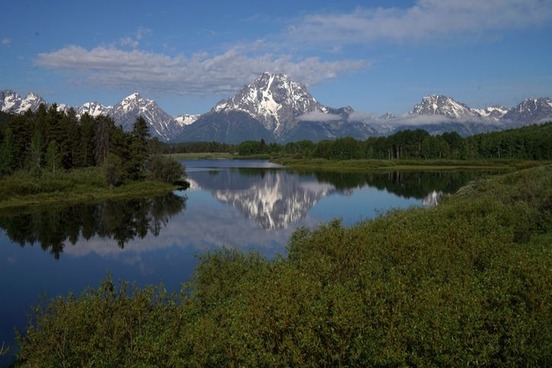
Oxbow
noun : something (such as a bend in a river) resembling an oxbow
The river's oxbow takes its name from what it so obviously resembles, if you're an 18th century farmer. Before it referred to a turn in a river or stream that is of such great curvature that only a neck of land is left between the turn's two closest edges, the word oxbow referred to the U-shaped frame that goes around an ox's neck, with the tops of the U passing through the bar of the yoke.
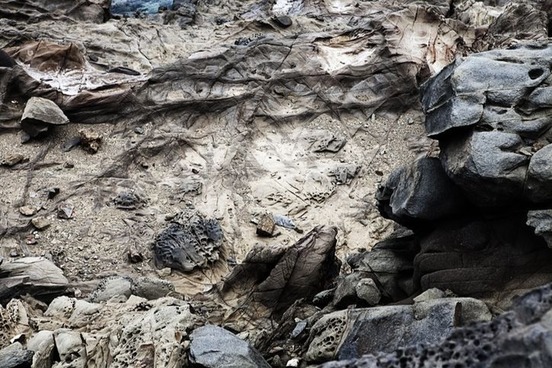
Alluvium
noun : clay, silt, sand, gravel, or similar detrital material deposited by running water
The more common alluvial is a few decades older (it dates to the mid-late 18th century as opposed to the early 19th), but it's just a descriptor of things that relate to, are composed of, or are found in alluvium, while alluvium is the actual stuff that gets deposited by running water. The word is an alteration of the Latin alluvio, which, along with alluvion, has some sparse use in English in referring to a point of Roman law by which land created by the deposit of alluvium is officially considered to have been acquired by the owner of the land to which it is added. The word alluviate, which means "to cover with alluvium" and "to deposit alluvium," is a mostly technical term that sounds dangerously like alleviate.
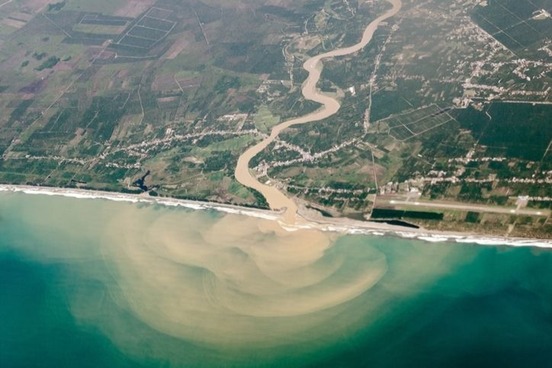
Delta
noun : the alluvial deposit at the mouth of a river
A river's delta is called such because it often resembles the capital Greek delta Δ, the fourth letter of the Greek alphabet. The resemblance only holds true for the delta's extremes: inside the nearly flat fan-shaped plain that makes up a delta are many separate branches by which the river distributes itself downstream. The branches are the result of the sediments carried by the water and accumulating too quickly to be carried away by offshore and alongshore currents.
The Greek word delta is of Semitic origin, sharing an ancestor with the Hebrew word dāleth, origin of the modern Hebrew daleth, the fourth letter of that language's alphabet. That word's origin is deleth, meaning "door."
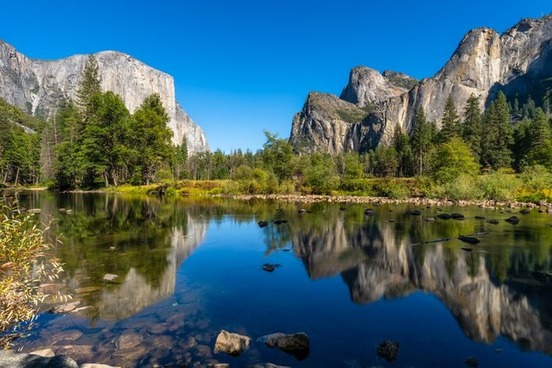
Riparian
adjective : relating to or living or located on the bank of a natural watercourse (such as a river) or sometimes of a lake or a tidewater
English had had the word river since the 14th century when it was decided in the early 19th century that a fancy (read Latin-sounding) adjective was required. Riparian was fashioned from Latin riparius, which was in fact also the ultimate source of river itself, though that word had traveled through Vulgar Latin, Anglo-French, and Middle English before it arrived in modern English.

Fluvial
adjective 1 : of, relating to, or living in a stream or river 2 : produced by the action of a stream
Unlike riparian, fluvial is no 19th-century upstart. It's been a member of the language since the 14th century, when it was borrowed from Latin fluvialis, which comes from fluvius, meaning "river." Fluvius comes from fluere, making fluvial a cousin to such common words as fluid and also fluent, which originally means "capable of flowing; fluid."
An unambiguous 19th-century upstart is fluvialist, a term for someone who emphasizes the action of streams in explaining geological phenomena—a theoretician of a type contrasted with the diluvialist, a believer in diluvianism, which pins its understanding of many geological phenomena on a former universal flood.
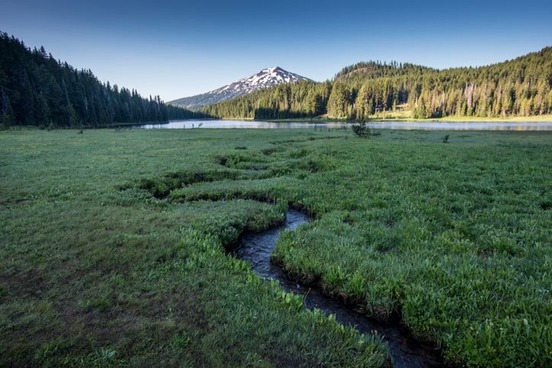
Meander
noun : a turn or winding of a stream
Meander first meandered into the language in the late 16th century, but it wasn't a verb; it was a noun meaning "a turn or winding of a stream." The word came to English (by way of Latin) from Greek, from a river in Asia Minor called "Maiandros," now known as "Menderes." Samuel Johnson used the word with the meaning of "a winding path or course," and it also functions as a synonym of labyrinth.
The more popular verb use dates to the early 17th century and means both "to follow a winding or intricate course" and "to ramble."





